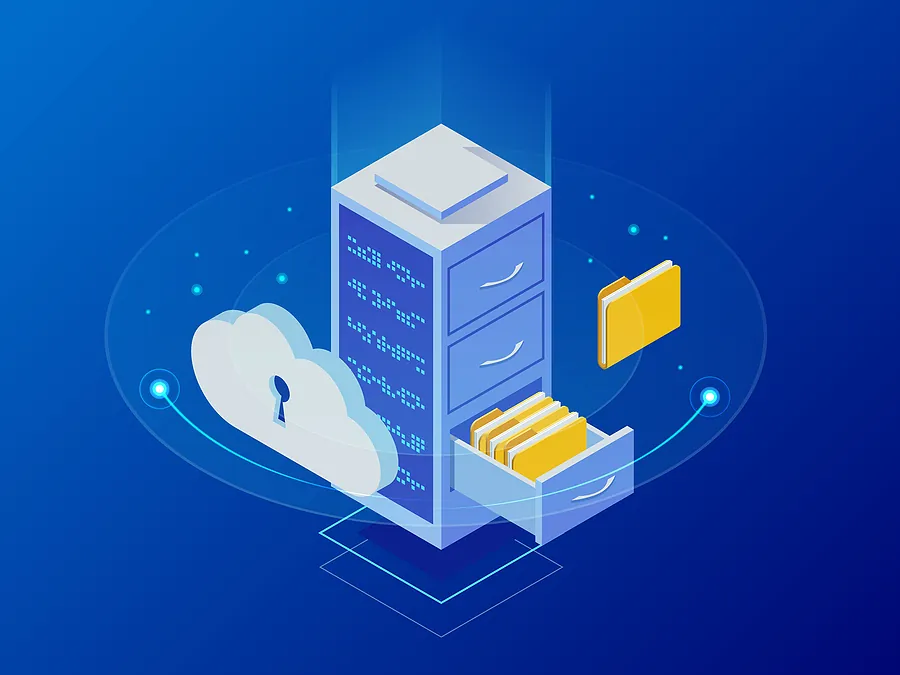
Data Integrity in the Supply Chain: The Hidden Factor Behind AI Accuracy
This is Part III of the Smarter Supply Chain Series
Part I: Why Supply Chains Need Clean, Real-Time Edge Data for AI Accuracy
Part II: AI Adoption in Supply Chains: From Agents to Mobile Execution
Artificial intelligence is often touted as the future of supply chain management driving automation, predictive insights, and real-time decision-making. But what happens when the data feeding those algorithms is flawed?
In supply chains, data errors can result in big inconveniences. A mistyped quantity, a missing serial number, or an inaccurate timestamp can ripple through ERP and SCM systems, skewing analytics, delaying shipments, and eroding profitability. Worse still, when AI models are trained or run on poor-quality data, their predictions and recommendations lose credibility.
That’s why data integrity has emerged as the hidden factor behind AI success. For companies running Oracle Cloud ERP and SCM, solutions like RFgen Mobile Barcoding ensure that the right data enters the system from the very beginning, creating a foundation for trustworthy AI outcomes.
Defining Data Integrity in Supply Chains
Before diving into solutions, let’s clarify what “data integrity” really means. In the context of supply chain and enterprise systems, data integrity goes beyond “is the field filled in?” It encompasses three core dimensions:
- Accuracy: Does the data reflect the real-world event or item it describes? For example, the quantity scanned should align with what is physically on the pallet.
- Completeness: Are all required attributes captured? Missing lot numbers, supplier codes, or timestamps create blind spots for both operations and AI models.
- Timeliness: Was the data captured and posted when it happened, or days later after manual reconciliation? Delays turn data stale, reducing its usefulness for planning or anomaly detection.
When integrity breaks down at any of these levels, the consequences ripple across the entire enterprise. Inventory records drift from reality, creating confusion on the warehouse floor and undermining confidence in stock levels. Demand forecasts begin to reflect false trends, leading planners to make poor decisions about production or replenishment. Procurement agents may generate unnecessary orders, tying up capital in excess inventory, while finance teams produce distorted cost and margin reports that obscure true performance. Over time, these misalignments compound, eroding trust in both systems and data-driven decision-making. In short, without integrity, supply chains are forced to operate blind.
Where Errors Creep In
Most supply chain executives know their systems depend on data accuracy, yet errors remain stubbornly common. The frontline environment, whether in warehouses, plants, or distribution centers, is still rife with manual entry, disconnected spreadsheets, and inconsistent workflows. Clerks mistype quantities, workers forget to capture critical lot numbers, drivers delay posting delivery information until days later, and supplier data often arrives in formats that do not match ERP requirements. Each of these breakdowns pollutes the “single source of truth” that Oracle Cloud ERP or SCM is designed to maintain. Once inaccurate data enters the system, every dashboard, forecast, or AI-driven optimization built on top of it becomes suspect.
The real challenge is that these errors rarely remain isolated. A single inaccurate receipt entry can ripple downstream, triggering false inventory counts, flawed planning assumptions, and unnecessary procurement actions. Over time, the compounding effect erodes trust across the organization, leaving leaders skeptical of both operational reports and the advanced analytics that depend on them. To break this cycle, companies need to address the problem at its origin, ensuring that data is captured correctly the moment it enters the system.
Why AI Needs Trustworthy Data
AI and ML models are only as smart as the data they consume, and when that data lacks integrity the results quickly become liabilities instead of assets. Algorithms trained on flawed inputs cannot distinguish between signal and noise. Forecasts skew toward false demand patterns, procurement recommendations misfire, and automated workflows take actions that create waste rather than efficiency. What makes this so dangerous is the illusion of precision: reports and dashboards still display crisp numbers and charts, but the underlying foundation is shaky.
This is why many supply chain leaders find themselves disappointed with early AI initiatives. It is not the models themselves that are broken, but the fact that they are fed by inaccurate, incomplete, or outdated information captured at the edge of operations. Without trustworthy inputs, even the most advanced AI engines will underperform, and confidence in digital transformation efforts erodes. By shifting the focus to data integrity first, organizations can transform AI from a risky experiment into a strategic enabler.
Here are a few specific ways poor data compromises AI in supply chains:
- Skewed Predictions: If historical sales data contains errors, demand forecasting algorithms will over- or under-estimate.
- Faulty Recommendations: AI procurement agents may suggest replenishing inventory that actually sits on shelves unscanned.
- Automation Failures: Robotic process automations (RPAs) break when fields they rely on are missing or inconsistent.
- Distrust in AI: Once executives see flawed AI outcomes, trust plummets, slowing adoption across the enterprise.
RFgen & Oracle: Solving the Input Problem
On the flip side, trustworthy data unlocks powerful capabilities. When data integrity is protected, AI delivers measurable value across supply chains. Reliable inputs allow anomaly detection systems to flag supplier delays or production issues in real time. Forecasting engines can align inventory levels with true demand patterns instead of chasing false signals. Maintenance schedules become proactive, with accurate usage data triggering service events before breakdowns occur. Even advanced applications like autonomous planning become feasible, because AI agents can act with confidence knowing the data they rely on is sound. In other words, data integrity transforms AI from a gamble into an advantage.
The solution isn’t to ask frontline workers to be “more careful.” It’s to eliminate the opportunity for error in the first place.
That’s where RFgen comes in. By embedding barcode scanning and mobile data capture directly into Oracle Cloud workflows, RFgen standardizes inputs and enforces validation at the moment of capture. Key benefits include:
- Standardized Data Capture: Barcodes eliminate keystroke errors by replacing manual entry with a scan.
- Built-In Validation: Rules check for completeness (e.g., can’t submit a receipt without a lot number) and accuracy (e.g., mismatched serials flagged immediately).
- Direct Integration: Data flows straight into Oracle Cloud SCM and ERP in real time, without middleware or rekeying delays.
- Edge-to-Core Consistency: From warehouse to corporate HQ, everyone sees the same clean, validated data.
For supply chain leaders, this solves the “input problem,” ensuring that the data feeding their enterprise systems, analytics engines, and AI tools is trustworthy from the outset.
Business Impact: From Waste to Profitability
Poor data quality costs organizations at least $12.9 million a year on average, according to Gartner research from 2020. Yet, supply chain leaders don’t invest in technology for technology’s sake. They invest to solve real business challenges. Ensuring data integrity at the point of capture with RFgen and Oracle delivers measurable impact:
The business impact of strong data integrity is both immediate and far-reaching. Accurate tracking of lots, serials, and expirations reduces waste by cutting scrap and preventing obsolescence. Worker productivity improves because scanning replaces typing, which reduces errors and speeds up every transaction. Profitability rises as AI-driven planning and optimization finally deliver value on the back of clean, reliable inputs. At the same time, compliance and traceability strengthen, with complete audit trails that support regulatory requirements and give leadership confidence in reporting.
Future-Proofing with Mobile Data Collection
The pace of supply chain innovation is accelerating. Cloud migration, AI adoption, IoT sensors, and blockchain are all converging. To thrive, companies need systems that not only solve today’s challenges but also future-proof their operations.
In supply chain terms, future-proofing means building workflows and data architectures that adapt to new technologies without requiring disruptive overhauls.
Mobile data collection plays a central role in this. By embedding validation rules and Oracle Cloud integration at the edge, RFgen ensures:
- Seamless Digital Transformation: Every scan feeds directly into digital workflows, bridging physical operations with enterprise intelligence.
- Scalability for AI: Clean, real-time data streams become ready-made training sets for machine learning models.
- Resilience: When disruptions hit, from supplier shutdowns to demand spikes, leaders can trust the data driving their response.
It’s tempting to think of AI as the magic bullet for supply chain complexity. But without addressing the integrity of the underlying data, AI becomes a house built on sand.
That’s why forward-looking companies modernizing with Oracle Cloud ERP and SCM are pairing it with RFgen to ensure every scan, every transaction, and every workflow starts with integrity.
AI is only as strong as its weakest datapoint. By strengthening data integrity at the point of capture, companies improve today’s operations and future-proof their supply chains for tomorrow’s AI-driven world.
Learning from Oracle AI World
The industry is taking notice of how critical trustworthy data is for AI outcomes. Several Oracle AI World sessions highlight this shift:
- Modernize SCM with Fusion Data Intelligence + AI Agent Studio (PAN3006): How AI agents streamline planning, automate procurement, and resolve disruptions in real time, all of which require high-quality inputs.
- Build AI-Ready Data Assets with Oracle Analytics (LRN3469): Turning raw supply chain data into AI-enhanced datasets and visual flows depends on clean capture at the start.
- GoldenGate + Agents (Real-Time Streams) (LRN3157): Trusted, high-velocity AI inputs depend on real-time streaming of validated transactional data.







